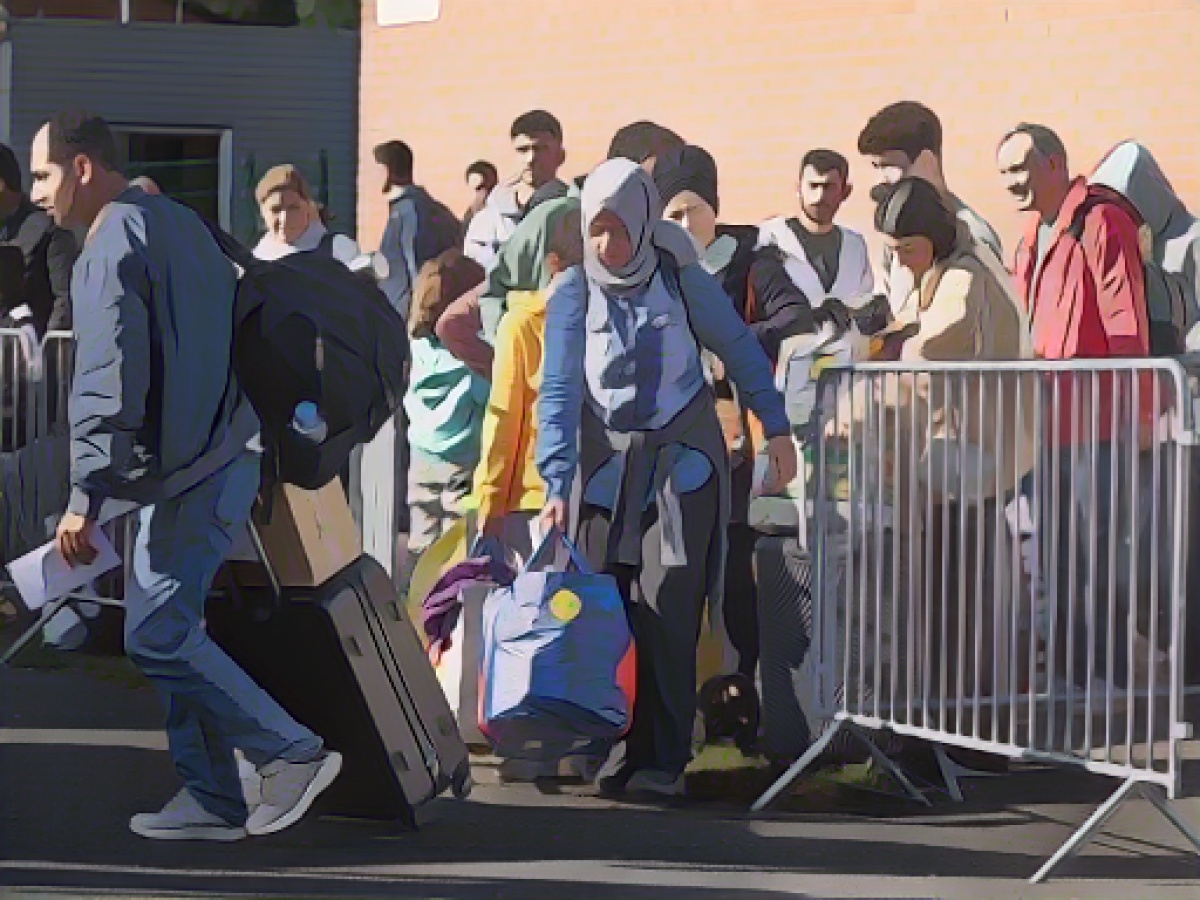States and cities want more money for refugee care
A few days before the migration summit, the federal states and local authorities are putting pressure on the federal government to provide more money for the care of refugees.
Several state premiers and the German Association of Cities have made it clear that they do not believe the federal government's offer is sufficient. However, Saxony-Anhalt's Minister President Reiner Haseloff also believes that the credibility of the state is at stake and that the meeting is essential for the political future of the state.
On Monday, the heads of government of the federal states will discuss measures to limit irregular migration with Federal Chancellor Olaf Scholz (CDU) in Berlin. In concrete terms, however, it is also about money for the care and accommodation of refugees. According to them, the federal government wants to reduce its share from 3.75 to 1.25 billion euros. The federal states are not prepared to accept this. In a resolution in mid-October, they had demanded a lump sum of 1.25 billion euros and at least 10,500 euros per migrant. In addition, the federal government should assume the accommodation costs in full.
Saxony-Anhalt's head of government, Haseloff, told the German Press Agency: "The federal government is responsible for securing the external borders. It is unacceptable that the federal government only wants to cover a fraction of the costs." The capacity limits had been reached. The municipalities and federal states can no longer cope with the permanent burden.
"Because we are not controlling immigration and not stopping illegal migration, more and more budget funds have to be spent on this area. Many people no longer accept this," emphasized the CDU politician. A "real breakthrough" was needed on Monday. "Otherwise, we will continue to lose credibility as a state. The shift to the right is in full swing. Ultimately, Monday will have a significant impact on Germany's political future," said Haseloff, outlining the significance of the meeting at the beginning of next week.
Municipalities "at the limit", population "unsettled"
Rhineland-Palatinate's Minister President Malu Dreyer (SPD) told dpa that many municipalities are "at their limit" with the accommodation of refugees. "It is also undisputed that the mood among the population is very unsettled." However, Dreyer also admitted that the federal government had implemented far-reaching demands from the federal states in a short space of time in order to limit the movement of refugees.
Saarland Minister President Anke Rehlinger (SPD) called for "more clarity and order" in German refugee policy. "Those who need our help will get it. To achieve this, the funding must finally be clarified," she told dpa.
The Minister President of Mecklenburg-Western Pomerania, Manuela Schwesig, told the "Rheinische Post" newspaper: "If more refugees come to Germany, federal support must increase." This must be finally agreed on Monday. "Nobody on the ground understands that more and more asylum seekers are coming and that the federal government is not prepared to finance the costs fairly," criticized the SPD politician. "The federal states are demanding 10,500 euros per capita per year from the federal government," she added.
The German Association of Cities also considers the federal government's offer to be inadequate. In the Funke newspaper, Markus Lewe, President of the Association of German Cities, demanded that Scholz should "have significantly more in his luggage than the 1.7 billion euros announced so far for a per capita lump sum". The amount for the lump sum must be "at least doubled". The meeting on Monday will only be a complete success "if we finally get a breathing system of funding that dynamically adapts to the number of refugees and is already secured in the federal budget for 2024", said Lewe.
Green MP Filiz Polat called for "a clear signal from the Federal Chancellor regarding appropriate financial support for local authorities with the aim of fair cost sharing between the federal and state governments". Concrete solutions for the municipalities are better than "sham debates about cuts in social benefits and benefits in kind" for asylum seekers, she told dpa. Green Party interior expert Misbah Khan warned in the dpa interview: "In view of the increasing international competition for workers, we cannot afford an anti-immigration mood in the country."
The Federal Government Commissioner for Integration, Reem Alabali-Radovan, called for permanent solutions "that help local authorities to take in people seeking protection and pacify the ongoing dispute". "What doesn't help us now are new charged debates every day about bogus solutions, upper limits for refugees and integration limits," she told the Funke newspapers.
FDP parliamentary group leader Christian Dürr reiterated his party's demand in the "Augsburger Allgemeine" newspaper to significantly reduce benefits for rejected asylum seekers who are obliged to leave the country. FDP ministers Christian Lindner and Marco Buschmann had also advocated this.
- During the migration summit with Olaf Scholz, the federal states strongly opposed the Federal Government's proposal to reduce its financial contribution for refugee care from 3.75 to 1.25 billion euros, arguing that they cannot continue shouldering the burden alone.
- Olaf Scholz, the Federal Chancellor, must provide more funding to the municipalities and federal states, as claimed by the German Association of Cities, if he wants to prevent the ongoing tension and the shift towards right-wing politics caused by the lack of fair cost-sharing in handling asylum seekers.
Source: www.dpa.com








